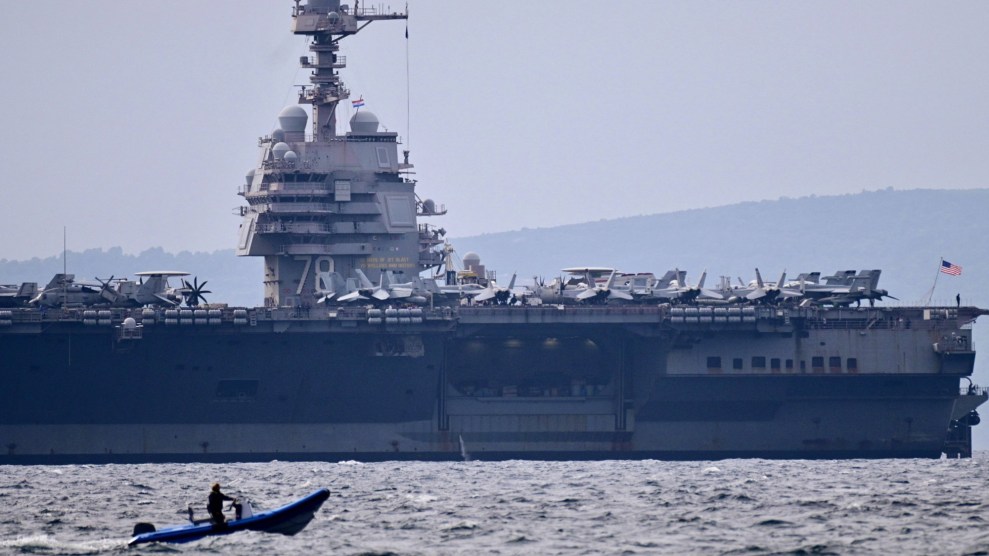The Trump administration has intensified its military presence in the Caribbean and South America, announcing the deployment of the USS Gerald R. Ford, the largest aircraft carrier in the US Navy, to the region. Defense Secretary Pete Hegseth confirmed the move on Friday, citing the purpose of enhancing the United States’ ability to detect and disrupt illicit activities. This announcement follows a recent military strike that resulted in the deaths of six individuals aboard a vessel claimed to belong to the Venezuelan gang Tren de Aragua, which the administration has classified as a terrorist organization.
In what has become an expanding military campaign, the Trump administration has conducted at least ten attacks against suspected drug boats since September, leading to the reported deaths of up to 43 individuals. Critics, including legal experts, have expressed concerns over the legality of such actions, labeling them as potential extrajudicial killings. The escalating military operations have sparked significant alarm throughout Latin America, heightening tensions between the United States and regional leaders.
Nicolás Maduro, the President of Venezuela, accused the Trump administration of fabricating a new war. Speaking at the UN General Assembly in New York, Gustavo Petro, President of Colombia, condemned the US attacks, calling for an investigation into US officials involved. He stated, “Launching missiles over two people in a small boat is a war crime,” and has since faced backlash, including sanctions imposed by the Trump administration that target both him and his family. In response, Petro characterized the sanctions as actions typical of an oppressive regime.
The rhetoric between the two countries has escalated, with Armando Benedetti, Colombia’s interior minister, criticizing the US for equating nonviolent statements with drug trafficking. He declared on social media, “Gringos, go home,” reflecting the growing frustration among Latin American leaders regarding US military interventions.
Mexican President Claudia Sheinbaum also expressed opposition to the US military campaign, emphasizing the need for adherence to international laws governing operations in international waters. She stated, “There are international laws on how to operate when dealing with the alleged illegal transport of drugs or guns on international waters, and we have expressed this to the government of the United States.”
As the military buildup in the region reaches levels not seen in decades, US officials have clarified that the ultimate aim of these operations is to force Nicolás Maduro from power. Secretary of State Marco Rubio has publicly accused Maduro of leading a narco-terrorist organization responsible for drug trafficking into the United States.
Concerns over the implications of potential military intervention in Venezuela extend beyond its borders. Celso Amorim, an adviser to Brazilian President Luiz Inácio Lula da Silva, warned that outside intervention could provoke widespread resentment, potentially inflaming political radicalization across South America. Lula, who is scheduled to meet with Trump in Malaysia over the weekend, indicated he might raise these pressing issues during their discussions, emphasizing the importance of respecting national sovereignty.
The ongoing military efforts and the resulting geopolitical tensions highlight the complexities of US foreign policy in Latin America and its ramifications for international relations. As the situation develops, the reactions from regional leaders will likely continue to shape the narrative surrounding US military actions in the Caribbean and South America.







